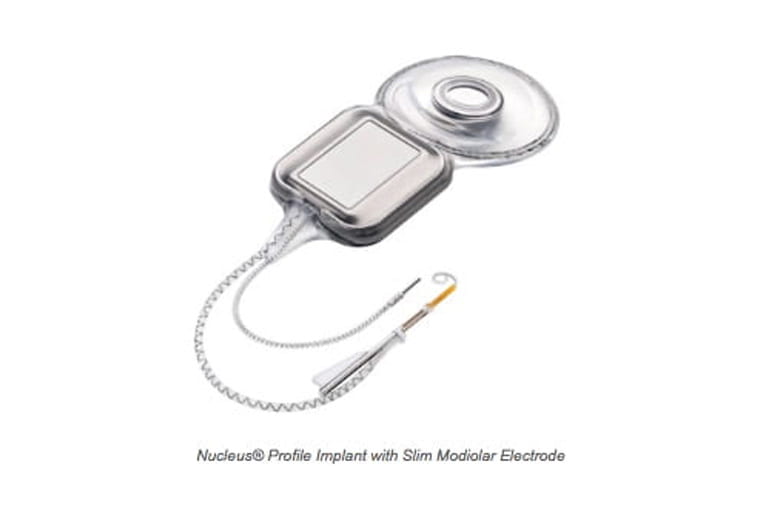The Cochlear Implant Center at Washington University School of Medicine was the primary investigator in a recently completed prospective multi-center trial evaluating a new cochlear implant electrode design called the Nucleus CI 532. This represents perhaps the most extensive prospective study of cochlear implant outcomes. The Nucleus 532 cochlear implant electrode is designed to allow for consistent placement within the cochlea immediately adjacent to the nerve endings in an effort to provide more direct stimulation.
After evaluating 100 adult recipients, the study revealed better improvements in word and speech understanding scores when compared to earlier CochlearTM devices. The study also analyzed quality of life outcomes six months following surgery and found significant improvement in all measures. The improvement suggests better quality of life changes even when compared with procedures such as hip replacement surgery.
“We were very excited to direct this one of a kind multi-center trial because of our initial preliminary outcomes with this new unique cochlear implant

Jacques Herzog, MD
electrode,” said Jacques Herzog, MD, division chief of Otology and Neurotology. “The extensive experience and outcomes we had with the initial release of the device was the primary driver in our being selected as the principal investigator in this study.”
Washington University School of Medicine has demonstrated historic leadership in the field of cochlear implantation. The Cochlear Implant Center has been instrumental through the years in advancing the understanding of how cochlear implants work, optimization of electrode placement within the cochlea, and expansion of indications for surgery. The Department of Otolaryngology implants nearly 250 patients each year, at three locations – Barnes-Jewish Hospital, St. Luke’s Hospital and St. Louis Children’s Hospital.
